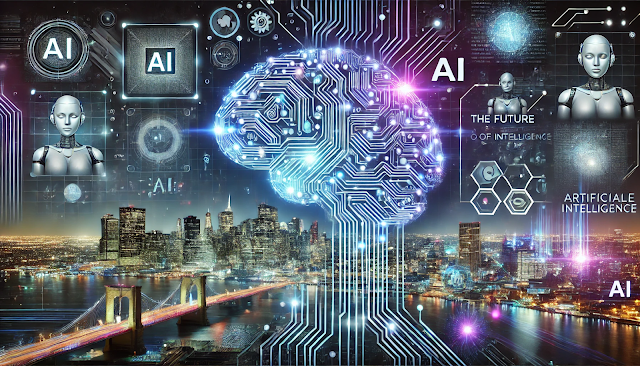The Future of Artificial Intelligence: Trends, Opportunities and Challenges
Artificial Intelligence (AI) is rapidly transforming industries, redefining the way we live and work. As we look ahead, understanding the emerging trends, opportunities, and challenges in AI becomes crucial for businesses, technologists, and society at large.
Emerging Trends in AI
1. Generative AI Revolution
Generative AI models, such as GPT-4 and DALL·E, are pushing the boundaries of creativity and automation. These models can generate human-like text, images, and even music, opening new avenues in content creation, design, and entertainment.
2. AI in Healthcare
AI is making significant strides in healthcare, from predictive diagnostics to personalized treatment plans. Machine learning algorithms analyze vast datasets to identify patterns, aiding in early disease detection and improving patient outcomes.
3. Autonomous Systems
The development of autonomous vehicles, drones, and robots is accelerating. These systems rely on AI to navigate complex environments, making real-time decisions that were once the domain of human operators.
Opportunities Presented by AI
1. Enhanced Business Efficiency
AI automates routine tasks, allowing businesses to focus on strategic initiatives. From customer service chatbots to supply chain optimization, AI-driven solutions improve efficiency and reduce operational costs.
2. Personalized Customer Experiences
By analyzing customer data, AI enables businesses to offer personalized recommendations and services. This level of customization enhances customer satisfaction and loyalty.
3. Innovation in Education
AI-powered tools are transforming education by providing personalized learning experiences. Adaptive learning platforms assess student performance and tailor content to individual needs, promoting better engagement and outcomes.
Challenges and Ethical Considerations
1. Data Privacy and Security
As AI systems process vast amounts of personal data, ensuring privacy and security becomes paramount. Organizations must implement robust data protection measures to maintain user trust.
2. Job Displacement
Automation may lead to job displacement in certain sectors. It's essential to invest in reskilling and upskilling programs to prepare the workforce for AI-driven changes.
3. Bias and Fairness
AI systems can inadvertently perpetuate biases present in training data. Developers must prioritize fairness and inclusivity, implementing checks to mitigate discriminatory outcomes.
The Road Ahead
The future of AI holds immense promise, but it also requires careful navigation. Collaboration between technologists, policymakers, and society is vital to harness AI's potential responsibly. By addressing ethical concerns and focusing on inclusive innovation, we can ensure that AI serves as a force for good.



Comments
Post a Comment